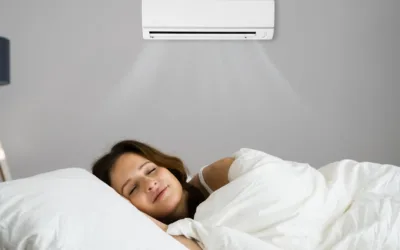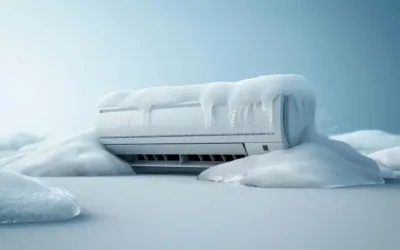Selecting the right air conditioning unit is crucial for ensuring comfort and energy efficiency, especially in a diverse climate like Nepal’s. However, the abundance of myths surrounding ACs often leads to misconceptions and poor decision-making. In this ultimate guide, we aim to debunk common air conditioning myths and present well-researched facts to help you choose the best AC in Nepal. Whether you’re a young Nepali upgrading your home, a first-time home buyer, or a real estate developer, understanding these myths versus facts will empower you to make an informed choice.
Understanding Nepal AC Market
Popular Brands in Nepal
When it comes to air conditioning units in Nepal, several brands stand out for their reliability and performance. Midea, LG, Samsung, and Daikin are among the most popular choices. These brands offer a wide range of models that cater to different needs and budgets. For example, Midea is renowned for its energy-efficient and advance featured models, which are perfect for reducing electricity bills. On the other hand, Samsung and LG provide advanced features like smart connectivity and air purification, making them ideal for tech-savvy consumers. Additionally, brands like Voltas and Hitachi are becoming increasingly popular due to their high-quality build and commitment to customer satisfaction. Knowing the strengths and weaknesses of these popular brands will help you make a more informed decision when choosing the best AC in Nepal for your home or business.
Common Misconceptions
Several misconceptions about air conditioning units persist in Nepal, often leading to poor purchasing decisions. One common myth is that bigger units always perform better. In reality, an oversized AC can lead to inefficient cooling and higher electricity bills. Another widespread belief is that all ACs consume a lot of power, deterring many from investing in them. However, modern models, especially inverter types, are designed to be energy-efficient. Many also think that regular maintenance is optional, but neglecting it can reduce the unit’s lifespan and efficiency. Lastly, some believe that running an AC continuously will result in faster wear and tear. In contrast, frequent on-off cycles can actually cause more stress on the system. Understanding these misconceptions can help you choose the best AC in Nepal, ensuring both comfort and cost-efficiency.
Importance of Energy Efficiency
Energy efficiency is a critical factor to consider when selecting an air conditioning unit in Nepal. With rising electricity costs, choosing an energy-efficient model can lead to substantial savings over time. Inverter ACs are particularly noteworthy for their ability to regulate power consumption based on the cooling demand, offering up to 30-50% savings compared to non-inverter models. Additionally, energy-efficient units are better for the environment, reducing your carbon footprint. They also tend to have a longer lifespan, as they operate more smoothly and require less frequent repairs. When looking for the best AC in Nepal, always check the Energy Efficiency Ratio (EER) and the star rating provided by regulatory bodies. Higher ratings indicate better efficiency. Investing in an energy-efficient AC not only ensures comfort but also promotes sustainability and cost-effectiveness, making it a smart choice for any home or business.
Best AC Nepal: Key Factors
Cooling Capacity
Cooling capacity is an essential factor to consider when selecting the best AC in Nepal. Measured in British Thermal Units (BTUs), cooling capacity determines how effectively an AC can cool a given space. Choosing the right capacity is crucial for both efficiency and comfort. An AC with insufficient capacity will struggle to cool the room, leading to higher energy consumption and wear and tear. Conversely, an oversized unit will cool the room too quickly without properly dehumidifying the air, resulting in a clammy environment. To determine the appropriate cooling capacity, consider the room size, ceiling height, and the number of occupants. For instance, a 150 sq. ft. room typically requires a 5,000-6,000 BTU unit, while larger rooms may need 10,000 BTUs or more. Properly assessing the cooling capacity ensures you get the best performance and energy efficiency from your AC unit in Nepal.
Installation and Maintenance
Proper installation and regular maintenance are critical to ensuring the longevity and efficiency of your air conditioning unit. A poorly installed AC can suffer from reduced performance and higher energy consumption. Therefore, always hire certified professionals for installation to ensure that the unit is correctly positioned and connected. Regular maintenance is equally important for keeping your AC in optimal condition. Routine tasks like cleaning or replacing filters, checking refrigerant levels, and inspecting the coils can prevent common issues such as reduced airflow and refrigerant leaks. In Nepal, where the climate varies significantly, seasonal maintenance checks can help adapt your AC to changing conditions. Neglecting maintenance can lead to costly repairs and a shorter lifespan for your unit. By prioritizing proper installation and consistent upkeep, you can enjoy reliable cooling and improved energy efficiency, making it a wise investment for any home or business in Nepal.
Price vs. Performance
Balancing price and performance is crucial when choosing the best AC in Nepal. While it might be tempting to opt for the cheapest model available, this can often result in higher long-term costs due to inefficiency and frequent repairs. On the other hand, the most expensive model isn’t always the best fit for your needs. Look for units that offer the best value for money by considering features like energy efficiency, cooling capacity, and additional functionalities such as smart controls or air purification. Brands like LG, Samsung, and Daikin provide a good balance of performance and affordability, making them popular choices in Nepal. Additionally, consider the total cost of ownership, including installation, maintenance, and energy consumption. Investing in a slightly more expensive but efficient unit can lead to significant savings over time. By carefully evaluating price versus performance, you can ensure you get the most out of your investment in an air conditioning unit.
















